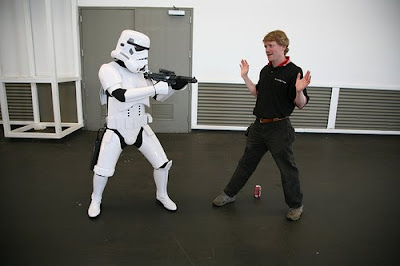
Palm Sunday, The Sixth Sunday in Lent
Pastor Gregory L. Jackson
http://www.ustream.tv/channel/bethany-lutheran-worship
Bethany Lutheran Church, 10 AM Central Daylight Savings Time
The Hymn #160 All Glory, Laud 4:49
The Confession of Sins
The Absolution
The Introit p. 16
The Gloria Patri
The Kyrie p. 17
The Gloria in Excelsis
The Salutation and Collect p. 19
The Epistle and Gradual
The Gospel
Glory be to Thee, O Lord!
Praise be to Thee, O Christ!
The Nicene Creed p. 22
The Sermon Hymn # 162 Ride On 4:80
Let This Mind Be in You
The Communion Hymn # 42 O Thou Love 4:93
The Preface p. 24
The Sanctus p. 26
The Lord's Prayer p. 27
The Words of Institution
The Agnus Dei p. 28
The Nunc Dimittis p. 29
The Benediction p. 31
The Hymn # 388 Just As I Am 4:91
KJV Philippians 2:5 Let this mind be in you, which was also in Christ Jesus: 6 Who, being in the form of God, thought it not robbery to be equal with God: 7 But made himself of no reputation, and took upon him the form of a servant, and was made in the likeness of men: 8 And being found in fashion as a man, he humbled himself, and became obedient unto death, even the death of the cross. 9 Wherefore God also hath highly exalted him, and given him a name which is above every name: 10 That at the name of Jesus every knee should bow, of things in heaven, and things in earth, and things under the earth; 11 And that every tongue should confess that Jesus Christ is Lord, to the glory of God the Father.
KJV Matthew 21:1 And when they drew nigh unto Jerusalem, and were come to Bethphage, unto the mount of Olives, then sent Jesus two disciples, 2 Saying unto them, Go into the village over against you, and straightway ye shall find an ass tied, and a colt with her: loose them, and bring them unto me. 3 And if any man say ought unto you, ye shall say, The Lord hath need of them; and straightway he will send them. 4 All this was done, that it might be fulfilled which was spoken by the prophet, saying, 5 Tell ye the daughter of Sion, Behold, thy King cometh unto thee, meek, and sitting upon an ass, and a colt the foal of an ass. 6 And the disciples went, and did as Jesus commanded them, 7 And brought the ass, and the colt, and put on them their clothes, and they set him thereon. 8 And a very great multitude spread their garments in the way; others cut down branches from the trees, and strawed them in the way. 9 And the multitudes that went before, and that followed, cried, saying, Hosanna to the Son of David: Blessed is he that cometh in the name of the Lord; Hosanna in the highest.
Palm Sunday
Almighty and everlasting God, who hast caused Thy beloved Son to take our nature upon Himself, that He might give all mankind the example of humility and suffer death upon the cross for our sins: Mercifully grant us a believing knowledge of this, and that, following the example of His patience, we may be made partakers of the benefits of His sacred passion and death, through the same, Thy beloved Son, Jesus Christ, our Lord, who liveth and reigneth with Thee and the Holy Ghost, one true God, world without end. Amen.
Let This Mind Be in You
There is only one message in the Bible, and that is the forgiveness of sin. The Scriptures have only one answer for that problem – that is faith in Jesus Christ.
Drawing upon his enormous knowledge of past theologians, Martin Chemnitz wrote his Two Natures of Christ. In this passage, Paul proclaims the Two Natures and teaches what they mean to us as believers.
The structure of this passage is clearly poetical, so it is often described as an early creed or catechism, or hymn. It could easily be both a catechism and a hymn.
Paul is also calling upon their memory of what they have been taught. We can find many examples of that method in the New Testament. The letters called on the believers to remember their Gospel lessons and the sermons preached to them in the past.
Here is the structure of Philippians 2.
The introduction deals with strife in the congregation, a setting for this Christ-hymn.
KJV Philippians 2:1 If there be therefore any consolation in Christ, if any comfort of love, if any fellowship of the Spirit, if any bowels [tenderness or sympathy] and mercies, 2 Fulfil ye my joy, that ye be likeminded, having the same love, being of one accord, of one mind. 3 Let nothing be done through strife or vainglory; but in lowliness of mind let each esteem other better than themselves. 4 Look not every man on his own things, but every man also on the things of others. 5 Let this mind be in you, which was also in Christ Jesus:
In this introduction, Paul is drawing all readers into the concept of having the same mind as Christ. They should be “of one mind” – and “let this mind be in you, which was in Christ Jesus.”
Jesus taught His followers to be meek, to follow His example:
KJV Matthew 11:29 Take my yoke upon you, and learn of me; for I am meek and lowly in heart: and ye shall find rest unto your souls. 30 For my yoke is easy, and my burden is light.
KJV Matthew 21:5 Tell ye the daughter of Sion, Behold, thy King cometh unto thee, meek, and sitting upon an ass, and a colt the foal of an ass.
KJV 2 Corinthians 10:1 Now I Paul myself beseech you by the meekness and gentleness of Christ, who in presence am base among you, but being absent am bold toward you:
KJV Colossians 3:12 Put on therefore, as the elect of God, holy and beloved, bowels of mercies, kindness, humbleness of mind, meekness, longsuffering;
Paul indicated that the current problems were caused by vainglory and strife, selfishness, and pride. I was at an LCA conference where every single person mentioned was preached into heaven for all his virtue, and great thankfulness was expressed. Finally an elderly pastor I knew took the microphone and said, “Why are we praising each other? We should be praising God?” That cut down on the vainglory for a time, and doubtless most people resented his introduction of Scriptural thoughts!
Today, many different denominations are aping the newest trend in claiming to “transform lives.” They realize that their statistical claims work against them, because they have reduced so many congregations and denominations in size by emphasizing numbers. So now they will “transform lives.” They engage in that activity by praising themselves for transforming lives through the Law, and naturally they cannot do that.
In contrast, this Gospel proclamation transforms lives. The Gospel itself has the power to accomplish more than man can imagine. Notice that all the therapies advanced by man are based upon law – you must do this and that. Of course, the experts demand a lot of money because they know how to make those law demands.
However, the Gospel transforms us by showing us what Christ has done for us and why He has done this. This particular poem teaches us the Two Natures of Christ – His human nature and His divine nature.
Here is the structure of the hymn/creed/catechism:
Christ Jesus:
6 Who, being in the form of God,
thought it not robbery to be equal with God:
7 But made himself of no reputation,
and took upon him the form of a servant,
and was made in the likeness of men:
8 And being found in fashion as a man,
he humbled himself,
and became obedient unto death,
even the death of the cross.
9 Wherefore God also hath highly exalted him,
and given him a name which is above every name:
10 That at the name of Jesus every knee should bow,
of things in heaven,
and things in earth,
and things under the earth;
11 And that every tongue should confess that Jesus Christ is Lord,
to the glory of God the Father.
Prelude:
Christ Jesus:
6 Who, being in the form of God,
thought it not robbery to be equal with God:
Jesus is not simply godlike, or better than all humans, or just a very nice man. He is God. This is an important introduction to what He accomplished, so we realize He did this as God-man, not simply as one or the other (the basis for much of the false doctrine throughout history).
First Stanza:
7 But made himself of no reputation,
and took upon him the form of a servant,
and was made in the likeness of men:
8 And being found in fashion as a man,
he humbled himself,
and became obedient unto death,
even the death of the cross.
Verse 7 indicates the Virgin Birth, which did not have to be argued, since it was well known and taught, not disputed at that time. Centuries later certain false doctrines arose, exalting Mary, leading to the Assumption of Mary. People claim that Paul did not teach the Virgin Birth. However, this verse is a transition from Jesus being equal to God and being “made in the likeness of man,” without an explanation. How this could be true apart from the Virgin Birth is a mystery.
This teaching is being recalled so people think of the attitude of Christ in His public ministry, as an adult. They should be like Him, even though He was equal with God. They are exalting themselves and creating strife, while He humbled Himself.
This section is extremely important because Christ appeared to be an ordinary man most of the time. He taught with authority and performed miracles that no one (until recently) would try to claim. Raising the dead was the ultimate miracle, especially because the most notable case, Lazarus, was known to the entire area, was prominent, and was a living witness to the divine power of Christ.
Nevertheless, Christ did not show off His power and allowed Himself to be treated as an ordinary man during His trial. Roman soldiers collapsed from His statement of “I AM” and Jesus destroyed the fig tree with one curse, but He did not struggle or fight off the arresting soldiers.
Jesus was the example of winning when appearing to lose, just as the victors of the moment lost by appearing to win. The martyrs who followed spread the Gospel upward by accepting their fate in front of angry mobs and cheering coliseum hordes.
The ultimate obedience of Christ was shown in His death on the cross, which He had the power to avoid completely. If we doubt His human nature, we only need to read His prayer that “this cup be taken from Me.”
The great humility of Christ is shown in His death, which He accepted while being innocent and also able to avoid. No human being can imitate that humility completely, but it remains our example to follow.
It was this painful and humble death which earned the forgiveness proclaimed in the Gospel Promises.
Second Stanza:
9 Wherefore God also hath highly exalted him,
and given him a name which is above every name:
10 That at the name of Jesus every knee should bow,
of things in heaven,
and things in earth,
and things under the earth;
The second stanza explains why the entire Bible focuses on Christ and glorifies Christ. Although the Holy Trinity is clearly taught from the beginning, the greatest emphasis is upon Christ, from Genesis 3 onwards.
The humility of Christ is the reason for His exaltation.
Man is always exalting himself, and that never works well. There are so many who have gloried in their accomplishments and power, only to find themselves reduced to nothingness because of it.
No matter what happens and how we are treated because of the cross, every knee will eventually bow before Christ. Everyone will acknowledge Christ, but for many it will be far too late.
Conclusion:
11 And that every tongue should confess that Jesus Christ is Lord,
to the glory of God the Father.
No matter how much people deny Christ now, they will eventually confess Christ as Lord. At the end of time, that will exalt all believers and torture all those who denied and betrayed Him.
 View full sizeRev Dr Gerald B Kieschnick“It’s a great honor and privilege for him to be here, and he takes his role very seriously to preach and pray the true word of God,” said the Rev. Edward A. Meyer, pastor of St. Mark Lutheran Church, 2565 N. Miller in Thomas Township. “It would be likened to having the pope come to Saginaw in the same manner.”
View full sizeRev Dr Gerald B Kieschnick“It’s a great honor and privilege for him to be here, and he takes his role very seriously to preach and pray the true word of God,” said the Rev. Edward A. Meyer, pastor of St. Mark Lutheran Church, 2565 N. Miller in Thomas Township. “It would be likened to having the pope come to Saginaw in the same manner.”





























